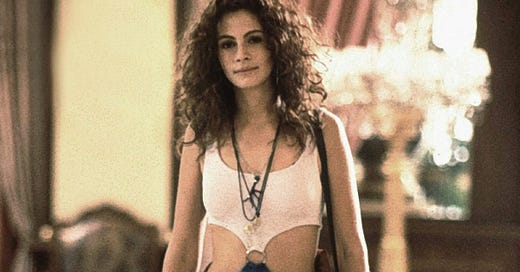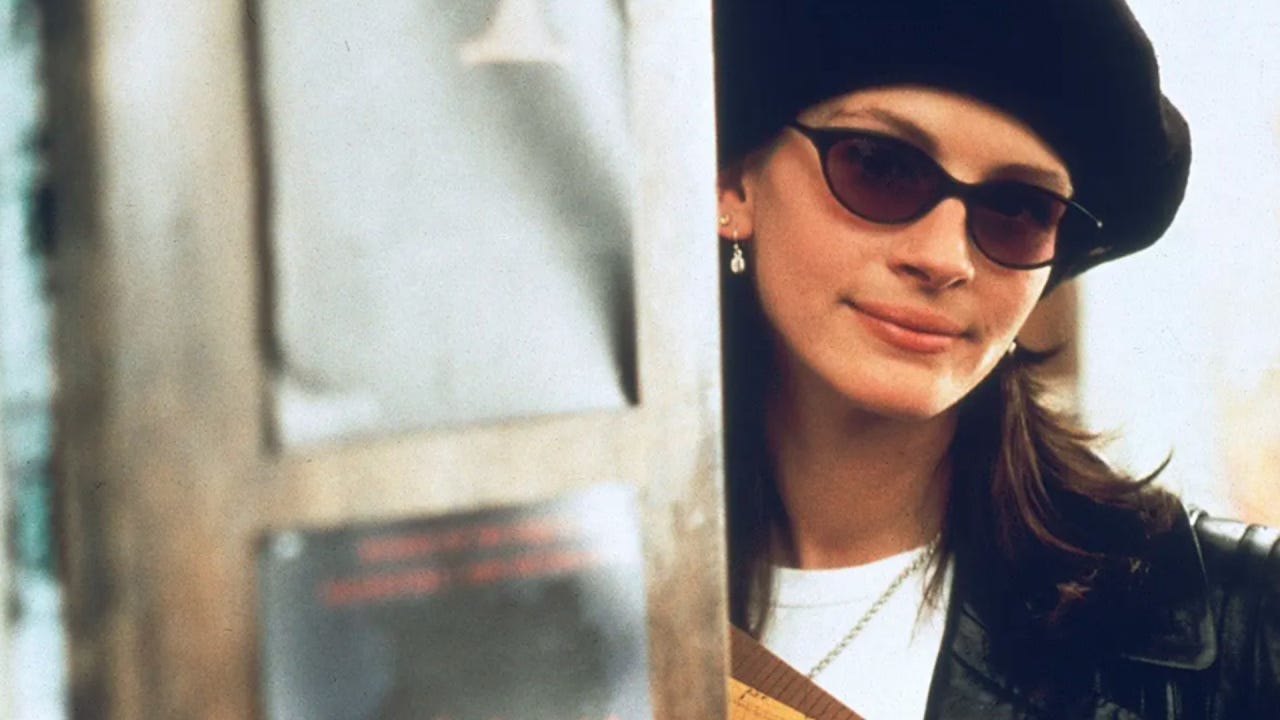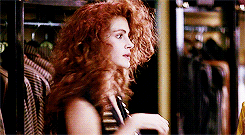(Touchstone Pictures / Buena Vista Pictures)
NOTE: This article was originally written for The Times of San Diego in 2018
As we know by now, the romantic comedy is hard to come by in modern cinema. Which is sad for those who considerate it a fave genre, and for anyone looking for an easy date night. But if history has shown us anything, it’s that movie viewers—young or old—still have their favorite romcoms in 2024. Everyone has their opinion on who’s the true, quintessential female face of romantic comedies. I’ve always maintained that title belongs to Meg Ryan, and not just because we share half a name. She was the onscreen alter ego of filmmaker Nora Ephron for a decade with the hits When Harry Met Sally… (1989), Sleepless in Seattle (1993) and You’ve Got Mail (1998), as well as co-starred in Fred Schepisi’s IQ (1994), Lawrence Kasdan’s French Kiss (1995) and Griffin Dunne’s Addicted to Love (1997). Meg kept the ‘quirky, but cute’ persona Diane Keaton popularized in the 1970s alive in the 1990s. Then there’s Sandra Bullock, who had her own successful vehicles with Jon Turteltaub’s While You Were Sleeping (1994), Griffin Dunne’s Practical Magic (1998), Bronwen Hughes’ Forces of Nature (1999), Marc Lawrence’s Two Weeks Notice (2002) and Anne Fletcher’s The Proposal (2009), giving the character type a sassier edge. Going even further back in Hollywood history, you’ll find Katharine Hepburn, Carole Lombard and Jean Arthur as regular female leads in romcoms like Howard Hawks’ Bringing Up Baby (1938), Gregory La Cava’s My Man Godfrey (1936) and George Stevens’ The More the Merrier (1943).
(Working Title Films /PolyGram Entertainment)
But the one movie star who usually gets the virtual romcom crown the most is Julia Roberts. Starting her career with the ‘chick flicks’ of Donald Petrie’s Mystic Pizza (1988) and Herbert Ross’ Steel Magnolias (1989), Julia leapt into superstardom with the Garry Marshall’s megahit Pretty Woman (1990). Then came Charles Shyer’s I Love Trouble (1994), Woody Allen’s Everyone Says I Love You (1996), P.J. Hogan’s My Best Friend’s Wedding (1997), Richard Curtis’ Notting Hill (1999), Marshall’s Runaway Bride (1999) and Joe Roth’s America’s Sweethearts (2001). Julia’s never been a main favorite of mine, and I think My Best Friend’s Wedding is borderline obnoxious, even as a big romcom fan. Yet, there is something about her efforts that keep people interested and want to revisit them, especially Pretty Woman. What I’ve noticed is how great the endings to her hit movies are. Endings, or third acts in general, are hard to pull off as effortlessly as the beginning of the film. Take for instance, Notting Hill, which I used to consider the weakest of the classic Richard Curtis romcoms [the others being Four Weddings and a Funeral (1994), Bridget Jones’ Diary (2001) and Love Actually (2003)]. But everything about the execution of the happy ending just flows so genuinely and sincerely that you can’t help but feel a bit joyous. And Elvis Costello’s ‘She’ playing along the sequence helps too.
Ocean’s Eleven (2001) is another movie with Roberts that has a stellar ending. Steven Soderbergh’s modern remake of the 1960 Rat Pack classic is actually a pretty good movie and still holds up. But the final sequence set to Debussy’s ‘Clair de lune’ is the most moving and touching moment in the film. Same with the final scenes of Pretty Woman, and yes, maybe even My Best Friend’s Wedding. So whatever secret weapon going through her production shoots seems to be working. She still holds the crown.






